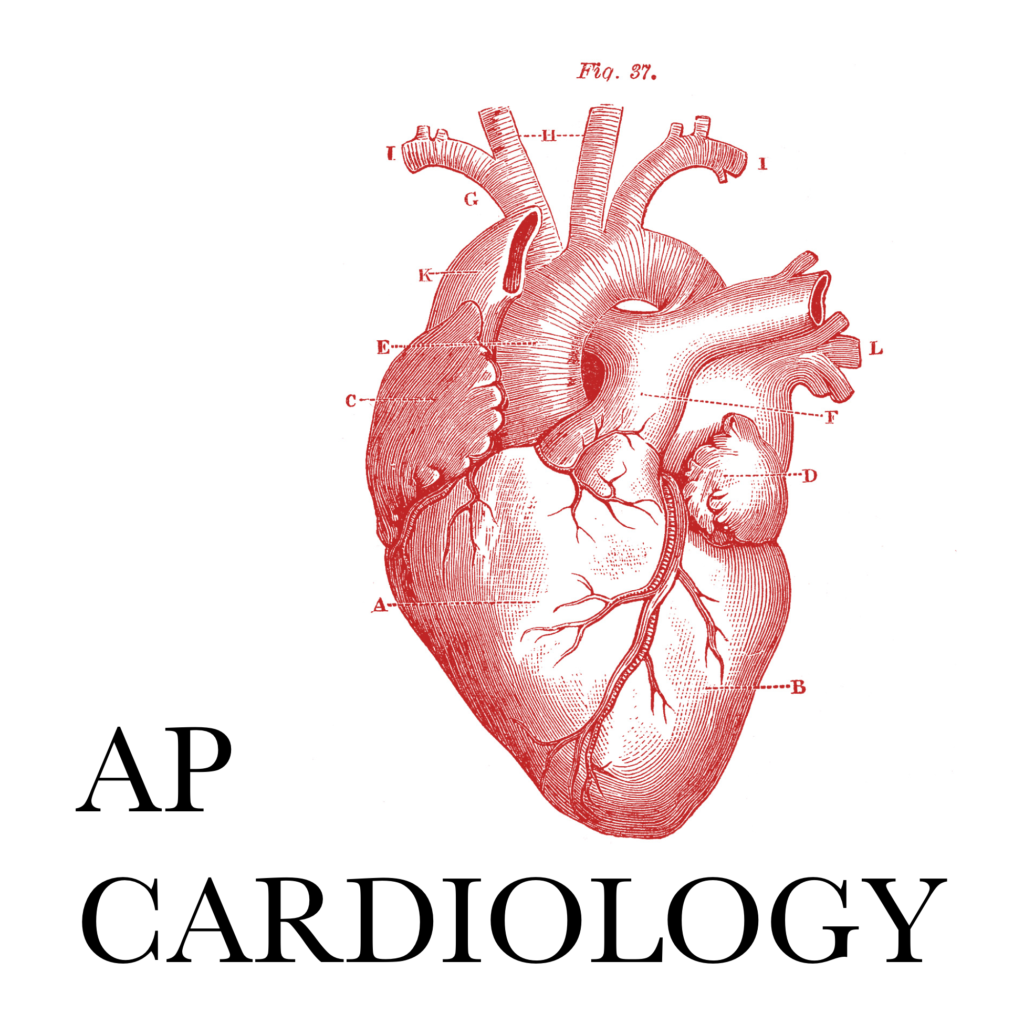Comprehending the Value of Cardiology in Modern Healthcare Providers
Cardiology plays an important role in modern-day healthcare, particularly as cardiovascular disease remains to be the leading reason for mortality worldwide. Advances in diagnostics and therapy have transformed client treatment, allowing earlier treatments and boosted end results. Furthermore, the change towards precautionary cardiology encourages people to handle their health proactively. As innovation remains to evolve, the combination of ingenious solutions might better redefine cardiology's influence on public health, triggering a better exam of arising fads and their ramifications.
The Prevalence of Cardiovascular Disease and Its Effect on Public Health
Although heart disease remains the leading cause of death internationally, its influence prolongs far beyond specific clients to influence public health and wellness systems and economic situations. The high frequency of heart illness positions a substantial pressure on healthcare sources, demanding increased financing for prevention, recovery, and therapy programs. Public wellness campaigns must attend to threat factors such as obesity, cigarette smoking, and inactive way of lives, which contribute significantly to the climbing incidence of heart conditions.Moreover, the financial concern related to heart problem is tremendous, incorporating not just direct clinical prices however likewise indirect expenses associated with shed performance and premature death. Communities deal with challenges in managing these costs, usually leading to differences in healthcare access and outcomes. As the populace ages and lifestyle-related dangers remain to intensify, the necessity for reliable cardiology interventions becomes extremely important. Resolving heart illness is not only an issue of private wellness yet also an essential public wellness concern.
Breakthroughs in Heart Diagnostics and Imaging Techniques
Recent advancements in cardiac diagnostics and imaging strategies have actually reinvented the area of cardiology, enhancing the capability to monitor and identify heart diseases. Techniques such as heart MRI, CT angiography, and echocardiography have ended up being significantly innovative, providing thorough photos of cardiac structures and features. These methods enable the very early recognition of conditions like coronary artery disease, heart failing, and valvular disorders.Moreover, developments in non-invasive diagnostics, such as wearable innovation and remote monitoring gadgets, have actually empowered clients and doctor. These tools assist in real-time monitoring of heart rhythms and other essential signs, leading to timely interventions. In addition, expert system is being incorporated into imaging analysis, improving accuracy and performance in medical diagnosis.
Developments in Therapy Choices for Heart Issues
Recent advancements in cardiology have led to substantial developments in therapy choices for heart disease. These include sophisticated surgical strategies that boost step-by-step outcomes and emerging medications that supply new avenues for therapy. As the field progresses, these innovations play an important function in boosting person care and results.
Advanced Surgical Techniques
Technologies in medical techniques have actually changed the landscape of cardiology, offering new hope for individuals with heart disease. Minimally intrusive treatments, such as catheter-based interventions, have considerably lowered recovery times and medical facility remains. Strategies like robotic-assisted surgical procedure enhance precision, allowing cosmetic surgeons to navigate complex anatomical structures with greater accuracy. Additionally, improvements in imaging modern technology promote real-time visualization throughout treatments, enhancing results. Transcatheter aortic shutoff substitute (TAVR) exemplifies a development in treating aortic stenosis, making it possible for shutoff substitute without open-heart surgical procedure. Additionally, hybrid strategies that integrate medical and catheter-based techniques offer customized solutions for different cardiac problems. These sophisticated surgical techniques not only improve individual safety but likewise increase therapy options, underscoring the critical duty of development in modern-day cardiology practices.
Emerging Medicines and Treatments
As the landscape of cardiology continues to develop, arising therapies and medications play a crucial duty in enhancing treatment alternatives for heart disease. Advancements such as unique anticoagulants and advanced lipid-lowering agents have transformed the monitoring of heart diseases, greatly reducing client morbidity and death. In addition, the growth of genetics treatments and regenerative medication provides encouraging avenues for dealing with problems previously deemed irreversible. Professional tests are consistently disclosing the efficacy of these therapies, pushing the limits of typical therapies. The combination of digital health and wellness technologies promotes individualized medication, permitting for customized therapy strategies based on hereditary and way of living aspects. Collectively, these innovations highlight the vibrant nature of cardiology, improving person end results and redefining standards of care in contemporary medical care.
The Function of Preventive Cardiology in Individual Care
Preventive cardiology plays a crucial function in client care by concentrating on the identification of threat variables that add to cardiovascular disease. With way of living adjustment methods and very early detection techniques, medical care companies can properly reduce the incidence of cardiovascular events - Cardiology. This proactive approach not just improves person outcomes but also promotes long-lasting health
Danger Aspect Recognition
While heart diseases continue to be a leading source of morbidity and mortality worldwide, reliable threat factor identification works as a keystone of precautionary cardiology. Determining danger aspects such as hypertension, family, hyperlipidemia, and diabetes history is important for very early treatment. Medical care specialists use numerous screening approaches to evaluate these aspects, permitting tailored precautionary steps. Furthermore, understanding an individual's way of life options, such as cigarette smoking and physical lack of exercise, better informs threat evaluations. This extensive evaluation enables clinicians to develop tailored care strategies focused on mitigating risks. By focusing on danger factor recognition, health care systems can boost client end results and reduce the overall worry of heart diseases, ultimately adding to boosted public health and wellness techniques and resource allotment.
Way Of Life Alteration Techniques
A multitude of researches highlights the vital function of way of life alteration methods in reducing heart disease risk. These techniques encompass nutritional modifications, raised physical activity, smoking cigarettes cessation, and weight management. By taking on a heart-healthy diet rich in fruits, vegetables, entire grains, and lean proteins, people can lower navigate to this website cholesterol levels and high blood pressure. Regular physical activity strengthens the heart and enhances total cardio health. Furthermore, stopping smoking cigarettes substantially minimizes the threat of heart problem and improves recuperation prices for those with current problems. Weight management further adds to cardio health by minimizing other danger variables such as diabetic issues and high blood pressure. Executing these way of life transforms not only promotes individual well-being yet likewise functions as a cornerstone of precautionary cardiology in person care.
Early Discovery Strategies
Lifestyle alterations significantly add to decreasing cardiovascular condition threats, however they are most efficient when coupled with very early discovery techniques. Preventative cardiology highlights the significance of recognizing potential heart concerns before they escalate into serious problems. Techniques such as blood stress monitoring, cholesterol testing, and progressed imaging technologies like echocardiograms play crucial functions in evaluating cardio health. Biomarkers and genetic screening also improve the precision of early discovery, enabling customized preventative techniques. Normal cardiac danger evaluations equip doctor to interfere proactively, potentially stopping cardiac arrest and strokes (Dr Garcia). By integrating these very early discovery methods into routine treatment, patients can gain from timely way of living interventions and targeted treatments, eventually improving and enhancing end results lifestyle
Integrating Innovation Into Cardiology Practices
As advancements recommended you read in technology remain to reshape different areas, the assimilation of innovative tools and systems into cardiology methods has ended up being crucial for enhancing patient care and outcomes. Telemedicine platforms permit cardiologists to keep an eye on individuals from another location, boosting accessibility to care while lowering the burden on healthcare centers. Wearable tools, such as smartwatches, make it possible for continual heart price tracking, informing both doctors and individuals to possible problems in real-time. Furthermore, synthetic intelligence (AI) is being utilized to assess substantial quantities of cardiac information, aiding in very early medical diagnosis and individualized therapy strategies. Advanced imaging methods, consisting of 3D echocardiography, boost visualization of heart structures, leading to much more exact interventions. Digital health and wellness records (EHRs) simplify patient details management, guaranteeing that cardiologists have prompt accessibility to crucial data. Together, these technological advancements are transforming cardiology, promoting aggressive administration and enhanced health results for individuals with cardio problems.
The Importance of Person Education And Learning and Involvement
Patient education and interaction play a pivotal function in the administration of cardio health. By furnishing people with expertise regarding their problems, treatment alternatives, and way of life adjustments, doctor encourage individuals to take an active duty in their treatment. This proactive technique can bring about boosted adherence to prescribed medicines, nutritional changes, and exercise programs, eventually lowering the risk of complications.Engagement also fosters a strong patient-provider connection, urging open interaction and trust. read here When clients feel notified and included, they are more probable to voice worries and ask inquiries, which can bring about far better clinical outcomes. Additionally, academic sources, such as workshops or electronic systems, can boost understanding and advertise self-management techniques. Generally, focusing on individual education and learning and interaction is crucial for boosting cardio health and wellness, enhancing high quality of life, and minimizing health care expenses connected with heart diseases.
Future Fads in Cardiology and Their Possible Influence

Frequently Asked Questions
What Way Of Living Adjustments Can Decrease Cardiovascular Disease Risk?
The existing inquiry addresses way of life modifications that can considerably decrease cardiovascular disease threat. Cardiology. Adopting a well balanced diet plan, participating in routine physical activity, keeping a healthy weight, taking care of anxiety, and avoiding cigarette can notably boost cardiovascular health
Exactly How Can I Recognize Very Early Signs of Heart Issues?
Recognizing early indicators of heart issues entails monitoring signs and symptoms such as breast discomfort, shortness of breath, tiredness, and uneven heartbeat. Prompt awareness of these signs can motivate required medical examination and intervention for far better outcomes.
What Are the Distinctions Between Cardiologists and Cardiac Surgeons?
The distinctions in between cardiologists and cardiac doctors depend on their functions; cardiologists primarily identify and take care of heart problems via non-invasive methods, while heart doctors perform surgeries to deal with structural heart issues. Each plays a crucial, distinctive role.

How Often Should I Obtain My Heart Health And Wellness Checked?
The regularity of heart medical examination differs based on specific threat aspects. Typically, grownups must undergo evaluations each to two years, while those with present conditions might need even more constant evaluations as advised by medical care experts.
What Duty Does Genetics Play in Heart Disease Danger?
Genes substantially influences heart problem risk, with domestic patterns indicating acquired conditions. Certain genes can incline people to hypertension, cholesterol concerns, and other cardio problems, highlighting the value of genetic screening in evaluating heart health and wellness. Heart disease stays the leading reason of death internationally, its influence extends much past individual clients to affect public health and wellness systems and economic situations. Public wellness campaigns should address danger variables such as excessive weight, cigarette smoking, and sedentary way of lives, which contribute considerably to the climbing incidence of heart conditions.Moreover, the financial concern linked with heart illness is enormous, encompassing not just straight clinical costs however also indirect costs associated to shed performance and early mortality. Preventative cardiology plays a crucial role in client care by focusing on the identification of danger aspects that add to heart condition. Fabricated knowledge (AI) and machine learning are improving diagnostics and individual surveillance, making it possible for very early discovery of heart conditions. The distinctions in between cardiologists and cardiac specialists lie in their functions; cardiologists mainly identify and handle heart conditions through non-invasive methods, while cardiac surgeons perform medical treatments to fix structural heart issues.